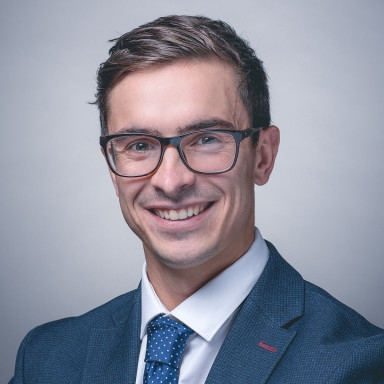Spencer Adair and Malcolm MacColl are seasoned investors, and both joined Baillie Gifford over 20 years ago
The managers look for companies across three growth categories: stalwarts, rapid, and cyclical growth
The trust has performed well since Baillie Gifford’s Global Alpha team took control in 2015, but has had periods of weaker performance when growth investing has struggled
How it fits in a portfolio
Monks Investment Trust aims to deliver long-term growth by investing in companies at various stages of growth. The managers invest anywhere in the world, including in higher-risk emerging markets, but they tend to invest more in developed regions like the US and Europe. The trust could be a building block for an adventurous investment portfolio or work well alongside other investments in unloved ‘value’ companies with recovery potential. Investors in closed-ended funds should be aware the trust can trade at a discount or premium to the NAV.
Manager
Spencer Adair took over as lead manager in May 2021 following the retirement of veteran manager Charles Plowden. Adair worked closely with Plowden having been deputy manager since 2015 and involved with the Global Alpha team since launch in 2005. Adair joined Baillie Gifford as a graduate in 2000 and became a partner in 2013. During his career he has worked across a variety of different teams including Japan, Europe and the UK.
Malcolm MacColl has been deputy manager since 2015 and worked with Adair for over 15 years. MacColl also joined as a graduate in 1999 and has been mostly focused on North American companies. Following Plowden’s retirement, MacColl was named joint senior partner at Baillie Gifford.
Helen Xiong was also named deputy manager in July 2024. She joined Baillie Gifford in 2008 and became a partner in 2020. Before becoming an investment manager in the Global Alpha team she had previously worked in the Developed Asia, UK, US Equity Growth, and Emerging Markets Equity teams.
The managers are part of the Global Alpha team which includes three analysts, one of whom is solely dedicated to Environmental, Social and Governance (ESG) analysis.
The managers also use a team of ‘scouts’ who are dedicated analysts, with at least 10 years’ experience, looking for investment ideas for the trust. These ideas are then discussed amongst the managers and key analysts. The managers also benefit from the wider resource available at Baillie Gifford which consists of over 100 investment professionals.
Process
The managers invest in companies that fall into one of three growth categories – ‘stalwarts’ that are already dominant in their industry and should keep steadily growing, ‘rapid’ often early-stage and innovative companies with big potential, and ‘cyclical’ companies whose growth tends to be tied more to the strength of the economy. They invest both in large companies and higher-risk smaller companies.
As at the end of June 2025, the growth stalwarts category made up 35.5% of the portfolio. The team added a number of new names in this category over the last year, including US software companies Paycom and Salesforce. On the other hand, they sold US online pet food business Chewy and Japanese cosmetic company Shiseido.
Rapid growth is the second largest category accounting for 33.2% of the portfolio. New additions in this category included US transportation company Uber and US energy business Enphase Energy. The managers also sold the trust’s investments in US healthcare giant Moderna and Norwegian digital marketplace company Schibsted now known as Vend Marketplace.
The cyclical growth category is the final category which makes up 29.5% of the portfolio. The team added US semiconductor supply company, On Semiconductor Corp, as well as Japanese semiconductor business Kokusai Electric Corporation. They also sold US consumer goods company Yeti and Norwegian cruise operator Norwegian Cruise Line Holdings Ltd
As a global trust, the managers can invest anywhere in the world, but they currently find the most opportunities in North America with 61.7% of the trust invested there. The rest is spread across developed markets in Europe, Japan, the UK, with some of the trust also invested in Asia and higher-risk emerging markets. In terms of sectors, the managers invest most in technology, industrials and consumer discretionary.
The managers also invest in higher-risk private companies that aren’t listed on a stock exchange. Over half of their unlisted exposure is through the Schiehallion Fund, an investment trust managed by Baillie Gifford that invests in later-stage private companies, which currently makes up 3.1% of the trust. The managers won’t invest more than 10% of the trust in unlisted companies.
The managers use gearing (borrowing to invest), which can boost gains but also increases losses, so is a higher-risk approach. At the end of July 2025 gearing stood at 8% the same as last year. They can invest in derivatives too which, if used, also adds risk.
Culture
Monks Investment Trust was established in 1929 and is part of the FTSE 250 index. The trust is managed by Baillie Gifford, an independent private partnership founded in 1908. It's owned by its partners, who work full time at the firm. This ownership structure means senior managers have a vested interest in the company, and its funds and investment trusts, performing well. Both Adair and MacColl are partners at the firm. We think this has helped cultivate a culture with a long-term focus, where investors' interests are at the centre of decision making. We also like that fund managers are incentivised in a way that aligns their interests with those of long-term investors.
While most of the ideas added to Monks Investment Trust are sourced from senior analysts, Adair also encourages more junior analysts to present ideas. This could encourage an open and collaborative culture.
ESG integration
All of Baillie Gifford’s funds are run with a long-term investment horizon in mind. The firm’s fund managers see themselves as long-term owners of a business, not short-term renters. So, assessing whether society will support, or at the very least, tolerate, the business model over the long term, and whether management will act as good stewards of shareholders’ capital is an important part of the investment process.
Dedicated Environmental Social and Governance (ESG) analysts sit with and report into both their respective investment teams, and the central ESG function. The firm’s ESG efforts are supported by a dedicated Climate team, an ESG Core team (responsible for voting operations, ESG data and ESG-related client communications). Individual investment teams are responsible for voting decisions and engagement for the companies they invest in. Investment in controversial weapons and cannabis is prohibited across the firm.
The firm reports all its voting decisions and provides rationale in situations where it votes against management or abstains, in a detailed quarterly voting report. There is also a quarterly engagement report which details the companies engaged with, and the topic discussed, and further engagement case studies are available on the website. All this information is brought together in the firm’s annual Investment Stewardship Activities report.
Baillie Gifford courted controversy in 2024 when it left the Net Zero Asset Managers’ Initiative, a group of asset managers that have committed to achieving net zero carbon emissions by 2050, and the Climate Action 100+ collaborative engagement scheme. It claimed membership of the organisations "has become contested", adding "this risks distracting from our core responsibilities". We view this as a disappointing backward step but are encouraged that the group's net zero and engagement-related commitments remain unchanged.
Although the trust takes ESG into consideration with every company in the portfolio it is not an ESG trust.
Cost
The ongoing annual charge over the trust’s financial year to 30 April 2025 was 0.43% a marginal decrease from last years ongoing annual charge of 0.44%. Investors should refer to the latest annual reports and accounts, and Key Information Document for details of the risks and charging structure. If held in a SIPP or ISA, the HL platform charge of 0.45% per annum (capped at £200 per annum for a SIPP and £45 for an ISA) also applies. The platform charge doesn’t apply if the trust is held in a Fund and Share Account, or in an HL Junior ISA.
Investment trusts trade like shares, both a buy and sell instruction will be subject to the HL share dealing charges.
Performance
Monks Investment Trust has delivered strong returns since the Global Alpha Team took over in March 2015. The trust’s share price has risen 224.70%* from then until the end of July 2025, ahead of the average trust in the AIC global sector which has returned 166.95%. Over this time the trusts NAV (Net Asset Value) has grown 218.66%.
Adair and MacColl were deputy managers during this time, and directly involved in the investment decision making process, so we think it’s fair to attribute this track record to both them and previous manager Charles Plowden. Past performance is not a guide to the future though and investments fall as well as rise in value so you could get back less than you invest.
Over the trust’s financial year to the end of April 2025, its share price fell -1.54% compared to a 0.85% return for the average trust in the AIC global sector. Over the same period, the trust’s NAV marginally grew by 0.09%.
The trust’s investments in healthcare companies were among some of the biggest detractors to performance. US healthcare insurance company Elevance Health was the largest detractor as it was negatively impacted by the number of government aided customers falling as they lose eligibility through Medicaid. Danish healthcare giant Novo Nordisk has also struggled as recent trail data from their next generation of weight loss drugs failed to meet the markets expectations.
Not every healthcare company failed to perform though. US gene silencing company Alnylam Pharmaceuticals reported strong late-stage trial data regarding treatment of a rare heart condition. The team have since sold some of their holding to lock in some of the profits. US food delivery company DoorDash also performed well as they continue to grow the business.
The trust has long-term performance potential, but periods of volatility should be expected. As always, we suggest investors build diversified portfolios with exposure to a variety of investment styles, sectors, countries, and asset classes. Plus, you should regularly review your investments to make sure they continue to meet your needs and objectives.
At the time of writing the trust trades at a discount of 7.74% however, on average over the last 12 months it has been at a 10.46% discount. On average over 10 years the trust has traded at a discount of 3.97%. The trusts’ board of directors have been very active in trying to lower the current discount and during the latest financial year purchased £321.1 million of shares.
31/07/2020 To 31/07/2021 | 31/07/2021 To 31/07/2022 | 31/07/2022 To 31/07/2023 | 31/07/2023 To 31/07/2024 | 31/07/2024 To 31/07/2025 | |
|---|---|---|---|---|---|
Monks Investment Trust | 27.84% | -26.30% | -1.35% | 16.87% | 15.83% |
AIC Investment Trust - Global | 28.18% | -10.13% | 4.44% | 19.54% | 12.10% |


